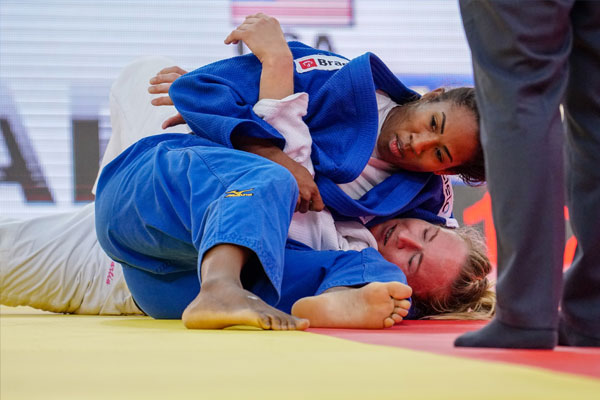Martial Arts Near Me
Judo
Judo is a martial art and combat sport that originated in Japan in the late 19th century. It was founded by Jigoro Kano with the aim of developing physical fitness, self-defense skills, and moral values. Combining elements of various traditional Japanese martial arts, judo has evolved into a highly respected and globally recognized discipline. This essay explores the historical development of judo, delves into its techniques, and highlights its current status as a sport and a means of personal development.
Judo traces its roots back to ancient Japanese martial art systems such as jujitsu, which focused on grappling and close-quarters combat. However, it was Jigoro Kano who revolutionized this concept by introducing a new approach to martial arts. Born in 1860, Kano was inspired to create a more efficient and safer system of self-defense. He analyzed various jujitsu techniques and discarded dangerous moves, emphasizing techniques that employed leverage and balance to overcome opponents.
In 1882, Kano opened the Kodokan Judo Institute in Tokyo. This marked the birth of judo as a distinct martial art. Kano also established a belt system to rank students based on their skill level and introduced competition in the form of randori (free practice) and shiai (competitive matches). Kano's vision for judo was not solely centered on physical combat but also emphasized character development and personal growth through training.

Judo consists of a vast array of techniques, encompassing throws, joint locks, and choking techniques. Its principles are based on the concept of maximum efficiency, where a practitioner aims to use their opponent's strength and momentum against them. This approach allows even smaller individuals to successfully overcome larger adversaries.
Throws, or "nage-waza," are one of the most distinctive aspects of judo. They involve unbalancing the opponent and using leverage to throw them onto the ground. Some well-known throws include seoi-nage (shoulder throw), uchi-mata (inner thigh throw), and harai-goshi (sweeping hip throw). Each throw requires precise timing, positioning, and the utilization of the opponent's body movements to be executed effectively.
Joint locks and chokes, known as "katame-waza," are techniques used to immobilize, control, or submit an opponent on the ground. These techniques often target the arm, shoulder, or neck. Examples include the armlock (juji-gatame), collar choke (hadaka-jime), and leg lock (ashi-garami). Mastery of these techniques requires not only physical strength but also mental focus and a deep understanding of the human anatomy.
Judo has gained global popularity and recognition since its inception. In 1964, judo became the first Asian sport to be included in the Olympic Games, held in Tokyo. This paved the way for judo to become an internationally recognized competitive sport. Today, judo is practiced in over 200 countries and is governed by the International Judo Federation (IJF).
Competitive judo takes place on a rectangular mat called a tatami. Matches are divided into weight categories, with both men and women participating. The objective is to score points through throws, holds, pins, or submissions. Matches can also be won by ippon, a full-point score that results in an immediate victory, or by accumulating smaller scores known as waza-ari or yuko.
While judo as a sport has become highly competitive, it remains true to Kano's original vision of personal development. Practitioners, referred to as judoka, are encouraged to embody moral values such as respect, discipline, and mutual welfare. Judo training cultivates physical fitness, mental resilience, and self-confidence. It teaches individuals to respect their opponents and hone their skills while maintaining a spirit of sportsmanship.
Beyond the competitive aspect, judo is also practiced for self-defense and personal growth. Many individuals join judo clubs to improve their physical fitness, learn self-defense techniques, and develop valuable life skills such as discipline and perseverance. Judo also instills a strong sense of community and camaraderie among its practitioners.
Judo has a rich history, diverse techniques, and a thriving status in today's world. Its origins as a system of self-defense have evolved into a globally recognized sport and a means of personal development. Judo continues to inspire individuals to strive for physical and mental excellence while embracing the traditional moral principles that underpin this remarkable martial art.